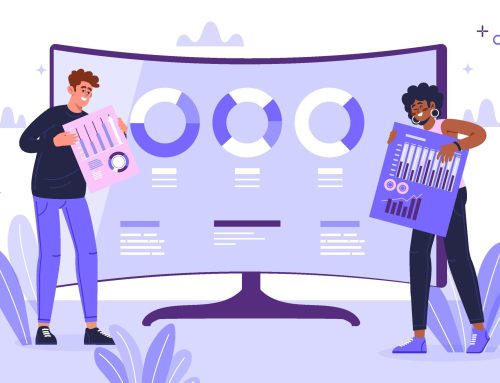IPA Product Focus
The highest rated personality analysis
IPA Core is a personality analysis and is an outline for a conversation where the result and quality is created in the dialogue between two people. Basically, we perceive the personality as a whole, where everything is connected. We always interpret the individual factors based on this personality whole.
Introduction
In today’s competitive work environment, companies are constantly looking for innovative ways to improve their HR processes and strengthen their employee culture. One strategy that has become increasingly popular is the use of personality tests. Personality tests allow companies to delve into the personality traits of employees and candidates, opening doors to more accurate recruitment decisions and more efficient labour management. In this blog post, we’ll explore when and how the use of personality tests can best benefit organisations.
Group development conversations, often referred to as GRDC conversations, are a key component of fostering open dialogue within a team. These structured conversations allow team members to express their thoughts, ideas and concerns without fear of judgement or criticism. Accordingly, this process can help build trust and increase mutual understanding between members.
During a GRDC conversation, team members can share their experiences, goals and challenges and work together to find solutions. This not only promotes individual growth, but also strengthens the bond between team members. The result is a more cohesive group that is better equipped to tackle challenges and drive the organisation forward.
When is it relevant to use personality tests?
1 Rekruttering og ansættelse:
1 Recruitment and hiring: When recruiting, it’s crucial to find candidates who not only possess the necessary skills but also fit into the company culture. Personality tests can reveal deep-seated traits that are difficult to detect through interviews and CVs alone. By using these tests, companies can identify candidates whose personality traits align with the company’s values and the specific job.
2 Team building: When it comes to building strong work teams, personality tests can be an important piece of the puzzle. By analysing individual traits, you can build teams where members complement each other. This can lead to more productive and harmonious working relationships, where employees with different strengths and weaknesses work together towards common goals and can complement each other’s strengths and shortcomings.
3 Development and training: Existing employees can also benefit from personality testing. By identifying individual strengths and areas for development, companies can customise training programmes and development opportunities for each employee. This leads to effective learning and a more engaged workforce.
How should personality tests be used correctly?
- Choose relevant tests: There is a wide range of personality tests on the market, each with their own strengths and limitations. It’s important to choose tests that are valid, reliable and customised to your company’s specific needs and culture. Of course, we recommend IPA Nordic’s personality test.
- Supplement with other assessment methods: Personality tests shouldn’t be the only factor influencing decisions. Combine them with interviews, references and skills tests for a more holistic assessment of candidates and employees.
- Respect privacy and confidentiality: It’s crucial to obtain consent from employees and candidates before conducting personality tests. Companies should also guarantee that test results are handled confidentially and with respect for the individual’s privacy.
- Professional interpretation: Personality tests can be complex and results can vary depending on various factors. It is therefore important to let professionals with experience in psychometric testing interpret and analyse the results correctly.

